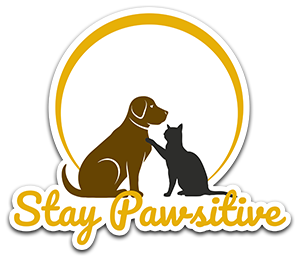Unsure of the five freedoms of animal welfare? Before you start working with a dog thinking that it has behavioral problems, you should ask yourself if its 5 freedoms are taken care of.
Fulfilling this basic requirement enables you to measure the level of welfare in our animal and certify that, although it might display one behavior or another, your pet as mentally well as possible.
Do you fulfill the five freedoms of animal welfare? Find out below.
Free from thirst, hunger and malnutrition
Although it may seem unthinkable that your pet can suffer thirst or hunger, it can happen without you noticing. How?
Water should always be available for your pet, including at night, i.e. when you are sleeping. In winter, especially if you live in a cold place, you must ensure that the top layer of water has not frozen over. To avoid this, you should place it inside the home.
As for the food, it is important to know what kind of food it is the one your pet needs, making sure it is of high quality. You may think that feeding it very rich food in abundance is good for it; however it is not so. Learn to pick up on the signs that your pet gives.

Free of discomfort
Comfort is something basic that depends directly on the environment that your pet lives in day to day. This includes having a comfortable bed in which to relax and unwind a stable room temperature; toys and accessories to entertain your pet; and security and peace of mind that is in a comfortable place. Older pets such as old dogs and cats will need extra comfort for their situation and physical condition.

Free of pain and disease
You cannot claim to have a dog that meets the five freedoms if it suffers an illness or disease. Remember that, although it might not suffer with a parasitic infection or serious illness, problems such as canine osteoarthritis or conjunctivitis in cats can create a malaise which, for example, makes them behave in a less friendly way.
Pay attention to the signs that can signal discomfort, be it in a cat, dog or even a hamster. It is very important that you check them periodically as they cannot communicate that they feel bad in the same way that humans can.

Free to express themselves
Dogs must be able to express themselves freely in the environment in which they live. For that reason it is essential to have good communication with your pet and know what it needs:
- Let them explore and sniff around: That will allow them to adapt to the environment in which they live, identify pets living nearby, find a particular place, perform their daily foraging tasks (as they would in nature) etc.
- Activity: It is very important that your dog can exercise all it needs; this will help rid your pet of stress and will make for a happier, more fulfilled pet. It is very important that you respect this point.
- Contact with people: Dogs that have spent their entire life with people want contact with them – it makes them feel socialized and happy. Sometimes they can develop certain behaviors as a way of asking for our attention and affection. Do not forget to pamper your dog, cat or any other pet that is accustomed to your presence and pampering; failing to do so can lead to severe anxiety or depression.
- Contact with other pets: If your pet has lived with others of their kind, they can become depressed when alone and bored.

Fear and stress free
Finally, to bring the five freedoms of animal welfare to an end, we must ensure that our dog suffers no fear or stress. This is this is the hardest of the five as we do not always know what types of fear our pet can have. With this in mind, we suggest:
- Do not force your pet to interact if they do not fancy doing so.
- Reward calm and tranquility.
- Never punish your pet physically.
- Teach your pet to understand “No”.
- Always use positive reinforcement.
- Do not create situations that put your pet through a hard time.
- Identify your pet’s fears and help its overcome them with the help of a specialist.

source: animalwised.com




